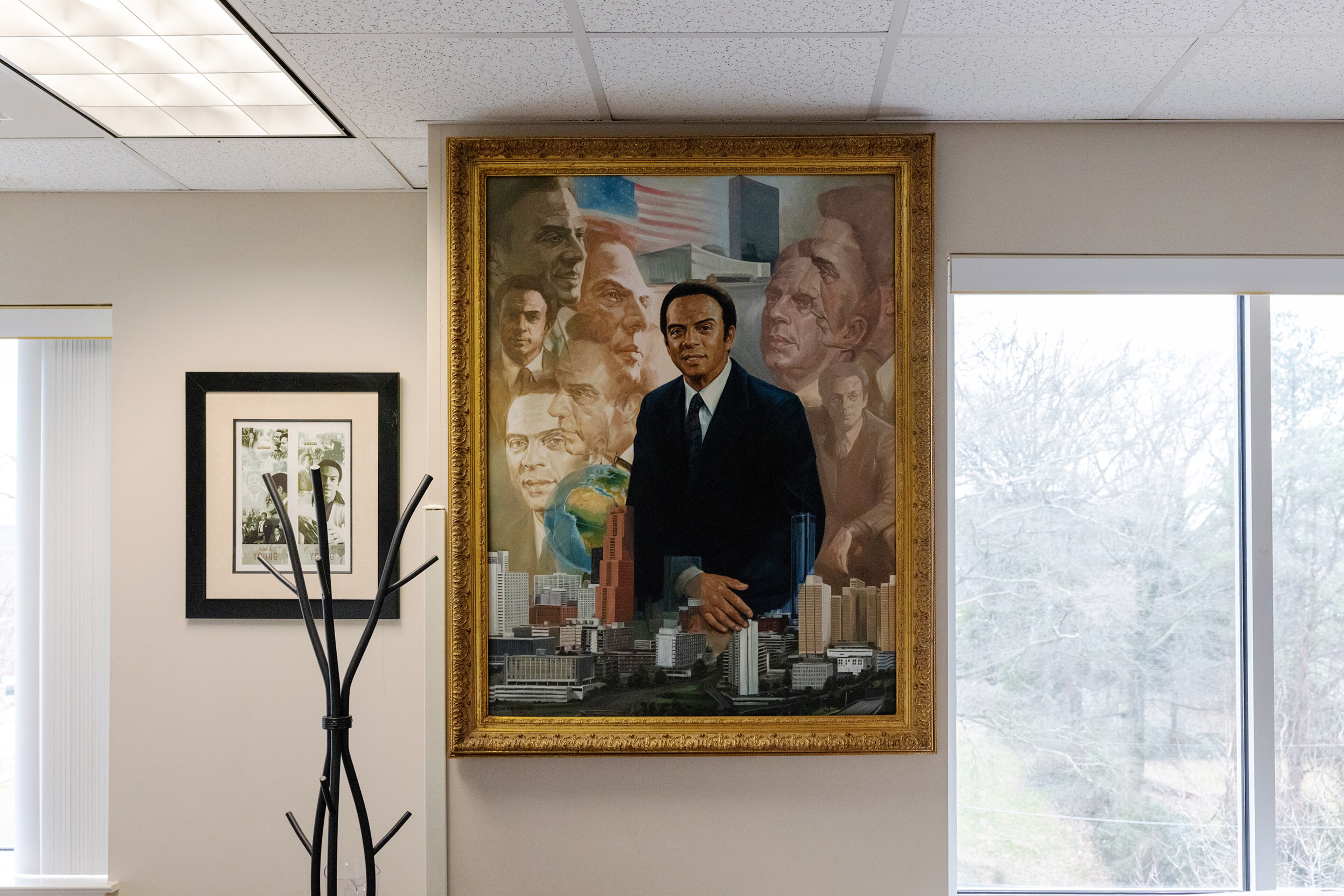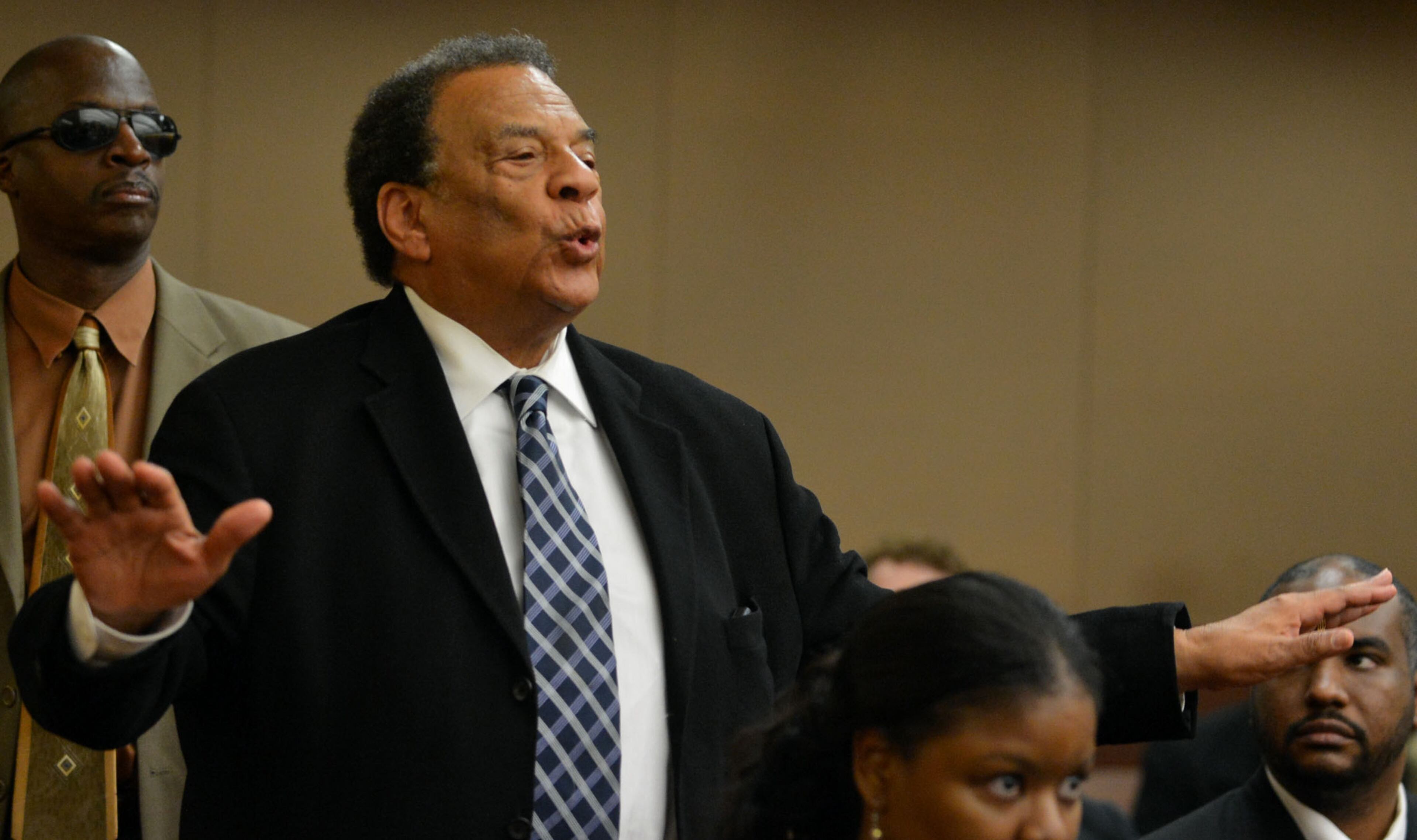Andrew Young: Nothing you can’t solve without violence










Published Jan. 12, 2013
There’s only one person with a resume like this in Atlanta. Make that America.
In his 80 years, Andy Young has been a pastor, civil rights leader, congressman, U.S. ambassador to the United Nations, Atlanta mayor, Atlanta Olympics leader and international business consultant. He's not only been a witness to history, including the assassination of the Rev. Martin Luther King Jr., but he's been an active participant in shaping it.
Young has spent his life dealing with domestic and international controversies, often using his negotiating or diplomatic skills to try to bridge the chasm between opposing sides. He shares a little of what he’s learned while experiencing the best and worst that human beings have to offer.

Q: What happened early in your life that helped shape your actions?
A: It's the way I was raised. I was blessed in New Orleans. I grew up in the middle of a block where there was an Irish grocery store on one corner, an Italian bar on another corner and the Nazi Party was on the third corner. My daddy had to explain to me when I was 4 years old why people were saying "Heil, Hitler" 50 yards from my house. This was in 1936. There was no air-conditioning. The windows were open, so you could hear them singing and you could see the swastikas inside.
My daddy was a dentist and a lot of his suppliers were Jewish. So there was always a discussion of the Nazis. My daddy told me that Hitler stomped out of the Berlin Olympics after Jesse Owens won the 100-meters race rather than give him his medal. But, my daddy said, Jesse didn’t get mad. He just went on to win three more gold medals.
My daddy told me you don’t get mad in a struggle. You get smart. He said racism and white supremacy is a sickness. You don’t get angry with sick people. You need to understand them and you need to help them understand you.
Q: Did you have any early experiences that sharpened your negotiating skills?
A: I was outnumbered in my neighborhood. There were very few black kids, so I couldn't fight my way out. I had to learn to get along.
But then I went to a segregated school about three miles away, where everybody was black. I had to learn to get along with them, too. I was the privileged kid whose daddy was a dentist, and this was a pretty rough, little school. The kids were poor. They would beat me up and take my lunch money, unless I organized for all of us to have lunch. I couldn’t have lunch if my friends didn’t have lunch.
So we collected coat hangers, bottles and pennies, and put all of our money together. We then went across the street to the grocery store and got a loaf of bread, bologna, cheese, a couple of big RC colas and a few moon pies. You could feed 10 people.
When people ask where I studied to be an ambassador, I say my neighborhood and my school. I’ve tried to tell my kids that you don’t wait until you’re in high school or college to start dealing with problems of people being different. The younger you start, the better.
The tendency is to want to protect your grandchildren. I don’t want to protect my grandchildren. I want to expose my grandchildren when they are as young as possible, so that they can cope.

Q: What’s the most important lesson from the civil rights movement?
A: There's no problem on the planet that can't be solved without violence. That's the lesson of the civil rights movement.
There were serious problems here. We could have had a bloodbath. We made democracy — which is a substitute for violence — work. And we could not have made democracy work with violence.
In the civil rights movement, we mobilized people as a positive force for working together as brothers.
Yes, I got hit during protests. But I also got hit with a baseball bat playing little league. I broke a leg playing touch football with girls.
Q: But Martin Luther King was assassinated. You were there.
A: I was really upset that I didn't get shot, too. I was more afraid of living without him and his leadership than I was afraid of dying.
Death is no problem. We’re all going to die. It’s the one thing we have in common.
My grandmother prayed to die. She lost her sight when I was 8. And from 8 to 14, I had to read the newspaper and The Bible to her. And everyday, she prayed for death. There was such a strong faith in life after death.
(The late civil rights leader) Hosea Williams once told Martin Luther King III: “Your father helped me become a man. He helped me conquer the love of wealth and the fear of death. And when I conquered them, I could become a real man.”
For me, it was the same thing. You have to start living for something that’s worth dying for.

Q: What have you done throughout your life that might provide an important lesson for younger people?
A: For my 80th birthday, they counted up all the countries that I visited. It was 152. The important lesson is that I feel comfortable in the world. I'm not afraid of the world.
I made it a point to talk with all kinds of people — students, government officials, business leaders. You’ve got to learn about the entire world, but you don’t have to travel the entire world like I did.
Once, I sat in White House briefings about a crisis in Somalia, but I did not get a clear understanding. But when I ran out and flagged a cab, what do you know? I got a cab driver from Somalia. In the 15 minutes from the White House to the airport, he gave me an understanding.
I think Georgia State University, the last time I heard, had 146 nations represented. Georgia Perimeter College had a similar number. If you’re a student, take advantage of the person-to-person contacts. Put on your schedule to have lunch with as many of them as possible. The end result is that when you get a job, you’re not going to be afraid of the world.
Each week, Sunday Business Editor Henry Unger has a candid conversation, called “5 Questions for the Boss,” with a top executive in Georgia. Some remarks are edited for length and style.


